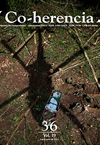“Happy” en Zaatari: Desigualdad y pertenencia global en el imaginario del campo de refugiados
Main Article Content
Keywords
Campo de refugiados Zaatari, Pharrell Williams, YouTube, humanitarismo global
Resumen
Este artículo analiza dos nuevas versiones en video de la exitosa canción “Happy” de Pharrell Williams, donde se representa a niños refugiados de Zaatari. Se debatirá el rol que tuvo la tendencia del video tributo “Happy” en el desarrollo de un imaginario global que se presta a discusión actualmente respecto a la felicidad altruista y el hecho de no dar un trato de excepción a la migración y al espacio humanitario. Observo videos en relación con esta tendencia y de la construcción de los medios del campo Zaatari como una “ciudad”. En el contexto de esta discusión e interpretación de los videos a través del paradigma de la urbanidad global, tal como vemos en el popular video “Happy”, sostengo que, de hecho, los videos muestran los límites de la ideología de pertenencia global cuando se trata de un campo de refugiados, y de la inconmensurabilidad de los imaginarios humanitarios y globales contemporáneos, incluso en una era definida por la influencia de los nuevos medios.
Descargas
Referencias
“After ‘Happy,’ Pharrell dedicates ‘Freedom’ To Migrants.” (2015, October 27). Al Arabiya News. https://bit.ly/37Fof3e
Agamben, G. (1998). Homo Sacer: Sovereign Power and Bare Life (D. Heller- Roazen, Trad.). Stanford University Press.
Agier, M. (2008). On the Margins of the World: The Refugee Experience Today. Polity Press.
Bornstein, E. (2003). The Spirit of Development: Protestant NGOs, Morality, and Economics in Zimbabwe. Routledge.
“British-Muslims ‘Happy’ video sparks backlash.” (2014, April 18). Al Arabiya News. https://bit.ly/3KssE88
Cabot, H. (2019). The business of anthropology and the European refugee regime. American Ethnologist, 46(3), 261-275. https://doi.org/10.1111/amet.12791
Cabot, H., & Ramsay, G. (2022). Deexceptionalizing Displacement: An Introduction. Humanity, 12(3), 286-299. http://humanityjournal.org/issue12-3/deexceptionalizing-displacement-an-introduction/
Chouliaraki, L. (2013). The Ironic Spectator: Solidarity in the Age of Post-Humanitarianism. Polity Press.
Clarke, K. (2018). When Do the Dispossessed Protest? Informal Leadership and Mobilization in Syrian Refugee Camps. Perspectives on Politics, 16(3), 617-633. https://doi.org/10.1017/S1537592718001020
Crossan, A. (2014, February 6). Tunisians get ‘Happy’ to Pharrell Williams’ song. Public Radio International. https://bit.ly/3DZ540c
Dahinden, J. (2016). A plea for the ‘de-migranticization’ of research on migration and integration. Ethnic and Racial Studies, 39(13), 2207-2225. https://doi.org/10.1080/01419870.2015.1124129
Dawson, A. (2017). Extreme Cities: The Peril and Promise of Urban Life in the Age of Climate Change. Verso.
Dehghan, S. K. (2014, September 19). Iranian Pharrell Williams Fans Behind Happy Video Sentenced. The Guardian. https://bit.ly/3DWsRxS
Dóchas. (2014). The Illustrative Guide to the Dóchas Code of Conduct on Images and Messages. Irish Association of Non-Governmental Development Organisations.
Echelman, A. (2014, December 22). What Makes Us ‘Happy’? World Policy.
Feldman, I. (2018). Life Lived in Relief: Humanitarian Predicaments and Palestinian Refugee Politics. University of California Press.
Finn Church Aid. (2019, April 21). The Plight of the Labour Market in Zaatari and Azraq Refugee Camps in Jordan. https://bit.ly/37btS9b
Garden, S. (2014, August 30). Welcome to the Champs-Elysée [sic] / Za’atari Refugee Camp. Emirates Woman. https://bit.ly/3E6LYW8
Harris, E. (2014, July 24). Videographer’s ‘Happy’ View of Gaza Turns Tragic. Morning Edition, NPR. https://www.u4.no/publications/beyond-the-work-permit-quotas
Kaphie, A. (2014, May 22). When ‘Happy’ Has No Home: Syrian Refugees Dance to Pharrell’s Hit Song. Washington Post. https://wapo.st/3Jq7m9J
Kennedy, D. (2009, February 28). Selling the Distant Other: Humanitarianism and Imagery – Ethical Dilemmas of Humanitarian Action. Journal of Humanitarian Assistance. https://bit.ly/3NXG0v7
Malkki, L. (1996). Speechless Emissaries: Refugees, Humanitarianism, and Dehistoricization. Cultural Anthropology, 11(3), 377-404. https://doi.org/10.1525/can.1996.11.3.02a00050
Newman, J. (2014, March 7). Pharrell Partners with UN for ‘International Day of Happiness.’ Rolling Stone. https://bit.ly/35YWli7
Pasha, S. (2020). Developmental Humanitarianism, Resilience and (Dis) empowerment in a Syrian Refugee Camp. Journal of International Development, 32(2), 244-259. https://doi.org/10.1002/jid.3454
Plewes, B., & Stuart, R. (2007). The Pornography of Poverty: A Cautionary Fundraising Tale. In D. Bell & J-M. Coicaud (Eds.), Ethics in Action: The Ethical Challenges of International Human Rights Nongovernmental Organizations (pp. 23-37). Cambridge University Press.
https://doi.org/10.1017/CBO9780511511233
Rawlence, B. (2016). City of Thorns: Nine Lives in the World’s Largest Refugee Camp. Picador.
Remnick, D. (2013, August 26). City of the Lost. New Yorker. https://bit.ly/3xfHPxs
The Honesty Policy. (2014, April 18). Happy... Why? https://bit.ly/3KuWxog
Thomas, H. R. (2014, October 6). Bringing hope to refugees in Za’atari village. The East: A New Perspective. Insight Into Politics and The Arts in The Middle East. https://bit.ly/3jqNvge
Tobin, S., & Alahmed, M. (2019). Beyond the work permit quotas: Corruption and other barriers to labour integration for Syrian refugees in Jordan. U4 (4), U4 Anti-Corruption Resource Centre. https://www.u4.no/publications/beyond-the-work-permit-quotas.pdf
Un, C., & Carlisle, L. (2019, November 3). Growing A Sustainable Community: How hydroponics are bringing an innovative approach to refugees. unhcr Jordan. https://bit.ly/3E6kLCP
unhcr. (2020, February 6). unhcr Jordan: Za’atari Camp Factsheet (January 2020). https://data2.unhcr.org/en/documents/details/73845
unhcr. (2021, August 3). unhcr Jordan: Za’atari Camp Factsheet (June 2021). https://data2.unhcr.org/en/documents/details/88036
Zuckerman, E. (2014, May 21). YouTube Parody as Politics: How the World Made Pharrell Cry. The Atlantic. https://bit.ly/3jpGUCI





